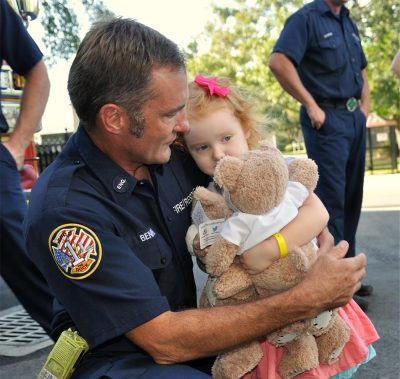Fire fighters and paramedics struggling with post-traumatic stress disorder (PTSD) know all too well how debilitating and exhausting this condition can be. Memories of your traumatic event can appear at inopportune moments and consume you with fear. You may find yourself suddenly overwhelmed by sadness, or go from feeling relaxed to on edge out of nowhere. Danger may seem as if it’s lurking around every corner.
You may think these symptoms are yours and yours alone. That if you just give yourself enough time, the memory of that difficult call from a few months ago will go away. You may even believe that one day you’ll wake up, and PTSD will be in your past. But the truth is, PTSD doesn’t just affect the people who struggle with it, and it rarely goes away without professional care. The effects can extend to the people close to you, including your children.
Seeing the Symptoms
Because children are sensitive to the ways that their parents act in their presence, they can quickly pick up on many of the subtle signs of PTSD, including re-experiencing, avoidance, numbness and hyperarousal.
- Re-Experiencing: Like many with PTSD, you may relive vivid flashbacks, memories or nightmares of traumatic events. These experiences can be triggered suddenly and may be accompanied by overwhelming guilt, fear, anger or grief. Despite your best attempts to maintain your composure, sudden shifts in mood can be frightening for children to witness. If they don’t understand what’s happening, they may feel intense anxiety about your well-being. They may even blame themselves, and believe that they did something to provoke you.
- Avoidance: Because traumatic flashbacks are so uncomfortable and difficult to deal with, you may avoid thoughts, places or experiences that could trigger them. It’s natural to feel hesitant to go anywhere outside of work and home if you think it’ll bring on extreme stress. But after you’ve said “no” enough times to trips to the store, the movies or the park, your child may begin to believe that you don’t want to spend time with them.
- Numbness: After a traumatic event, it can be difficult to conjure up positive or loving feelings toward yourself or others. You may wonder what’s wrong with you, and find it easier to withdraw from your friends and family than to deal with the painful absence of these feelings. But your child will notice when you begin to pull away. They may interpret your emotional absence as proof that you don’t really love them. Even if you offer verbal reassurance, actions matter more to your children.
- Hyperarousal: PTSD can make you believe that the world is inherently dangerous, leaving you with around-the-clock anxiety. You may become easily startled, irritable and be hypervigilant about your own safety and the safety of the people you love. For a child, navigating this combination of concern and agitation can feel like walking on eggshells. They may question your love for them, and be fearful of your anger.
How Children Cope
Without an explanation, the symptoms of PTSD can be incredibly confusing for youngsters. Children have a particularly tough time coping with these unexplained bouts of avoidance, anger or frustration. According to the U.S. Department of Veterans Affairs, most deal with these events in one of three ways:
- Over-identifying: Your child might begin to exhibit PTSD symptoms to try to connect and identify with you.
- Rescuing: To help improve your mental state, your child may take on an adult role and try to take care of you.
- Becoming emotionally uninvolved: As a result of receiving little emotional support, your child may have problems at school or develop mental health conditions such as anxiety or depression.
The Importance of Opening Up
If children don’t understand the cause of your PTSD symptoms, they may blame your behavior on themselves. Because of this, the best thing you can do for your daughter or son is tell them what’s going on, without burdening them with any graphic details. The important thing is for them to know that it’s not their fault.
But before you can explain yourself to your loved ones, you first may need to have to accept the changes in your mood, thoughts or behavior that have impacted you and your family’s daily life. This is the first step to getting back to the parent or spouse you want to be. Your friends, your family and most importantly — your children — need you.
The IAFF Center of Excellence is a behavioral health facility designed by IAFF members, for IAFF members. We’ve helped countless fire fighters and paramedics find relief from PTSD symptoms, and we can help you, too. Call a representative today for more information, or to take the first step toward a better life for yourself and the people who love you.
Medical Disclaimer: The IAFF Center of Excellence aims to improve the quality of life for people struggling with a substance use or mental health disorder with fact-based content about the nature of behavioral health conditions, treatment options and their related outcomes. We publish material that is researched, cited, edited and reviewed by licensed medical professionals. The information we provide is not intended to be a substitute for professional medical advice, diagnosis or treatment. It should not be used in place of the advice of your physician or other qualified healthcare provider.

